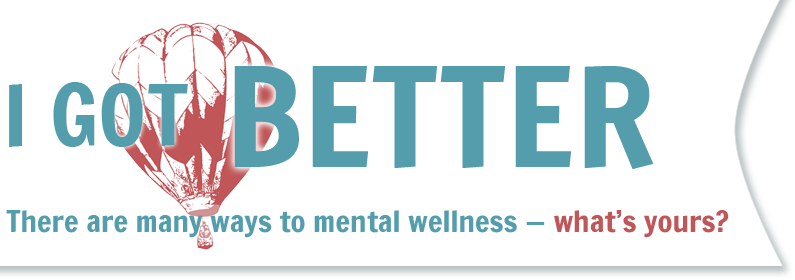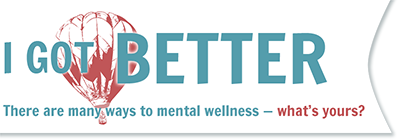Recovery, Healing, and Personal Evolution Are Possible
Linda Simpson; Phoenix, AZ

In what ways have you found psychiatric medication(s) helpful, if any?
Taking psychiatric medication lessoned certain symptoms so that I had some ease and time to experiment with what else could be helpful and to heal.
In what ways have you found psychiatric medication(s) harmful, if any?
They kept me “doped up” and disconnected with what was really going on with my body, mind and spirit. It took a long time to notice that. Also, taking medication kept the focus on medication management rather than emotional and physical healing and recovery. At one point I was on 4-6 different medications. With success using cognitive behavior methods (mind over mood book) that changed to 2. I had to advocate for this and to practice experimenting with slow and gradual medication change. I am now tapering off tegretol, and will only be on one [medication] for ADD. I’ll experiment with lessening this when it seems right.…
Learning to feel again and connecting with my body has been very good.
During your mental health care, have you often felt hopeless about your chance of getting better?
Before I discovered how the recovery movement had evolved (before 2003), I had doubts about what could help. Then I connected with a few folks (peers, some who are master’s prepared therapists now) who understood the value of spiritual emergence, grief and loss, and EMDR [Eye Movement Desensitization and Reprocessing]. That’s made a significant difference.
During your mental health care, have you often felt hopeful about your chance of getting better?
My particular background and reading led me to deeply understand that recovery, healing and personal evolution are possible. Thank goodness!!! 3 especially good counselors since 1988 played a role as have some very special friends. The percent of good counselors is pretty low! I had to really be focused and insist on finding people who really connected for me. Not many people do this!
If you overcame hopelessness that you could get better from a mental health or emotional problem, was there a turning point for you? Please describe:
Discovering how the recovery movement had evolved and connecting with folks who were focused on creating lives that worked for them and who understood what that takes. Seeing how some “recovery-talking” folks take advantage of folks receiving services and working in peer positions, I decided that I would support me (and them) to prevent that from happening. These are folks who talk the talk and have not fully walked the walk.
Can you give examples showing you have gotten better from a mental or emotional problem, such as how you are doing well or accomplishing goals you have chosen?
I’ve lost jobs or been at risk of losing jobs, but now am an important contributor to the recovery and well-being of others where I work. I am also helping to grow the recovery focus where I work.
As I become stronger and more centered the impact of my efforts becomes larger. I expect to purchase my first home soon. I’m 61. My 2 children are managing their lives effectively and have not experienced significant symptoms of mental illness. I serve as a healing resource and positive influence/role model for many others.


